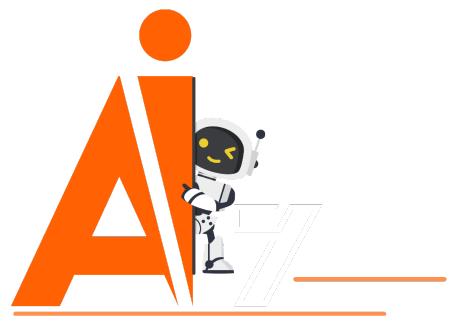Don’t Get Censored by ChatGPT: Essential Moderation for Ethical AI Prompts
Introduction
Artificial intelligence (AI), exemplified by OpenAI’s ChatGPT, is revolutionizing our interaction with technology in today’s rapidly evolving digital landscape. These advancements are not just reshaping the boundaries of what machines can do but also unlocking new realms of productivity and creativity for humans. Integrating AI into various aspects of our lives—from automating mundane tasks to generating new art forms—presents many opportunities to enhance personal and professional endeavors. Yet, with great power comes great responsibility. The ethical deployment and utilization of AI technologies, particularly in how we communicate with systems like ChatGPT, are paramount to harnessing their potential while mitigating risks and ensuring a beneficial impact on society.

This detailed guide explores the nuanced landscape of ethical AI use, focusing on the intricacies of content moderation within ChatGPT interactions. Understanding the mechanisms and principles behind content moderation is crucial, as it directly influences the quality and relevance of the AI’s responses. Missteps in prompt crafting can lead to failed search results, irrelevant answers, or even the propagation of misinformation. Such outcomes not only frustrate users but can also perpetuate harmful biases or unethical content, undermining the integrity and utility of AI systems.
The essence of crafting effective prompts lies in balancing clarity and specificity, ensuring the AI can accurately interpret and respond to user inquiries. However, navigating this balance can be challenging. The AI’s response is contingent upon its training data and algorithms, which, despite being designed to mimic human-like understanding, have limitations and are subject to the ethical guidelines set by developers. Misunderstandings or vague prompts can easily veer off course, leading to unsatisfactory or ethically ambiguous output. Therefore, this guide serves as a practical manual for improving user interactions with ChatGPT and as a critical examination of the ethical considerations underpinning these interactions. By delving into content moderation principles and the rationale behind certain restrictions, users can better navigate their engagements with AI, ensuring that their prompts are aligned with ethical standards and conducive to generating meaningful, accurate, and responsible responses.
The Ethics of AI Usage
Navigating Ethical Boundaries
The integration of AI into our lives raises significant ethical questions. The primary concern is ensuring that AI technologies, such as ChatGPT, are used to benefit society without causing harm. Ethical AI usage involves recognizing the potential of these technologies to influence public opinion, automate critical decisions, and impact privacy and security. Users must be mindful of these implications, employing AI tools like ChatGPT to promote inclusivity, accuracy, and fairness.
Content Moderation in AI
Content moderation is essential in preventing AI from generating or disseminating harmful, misleading, or unethical information. OpenAI has implemented sophisticated moderation systems in ChatGPT to identify and restrict content that violates ethical guidelines. This system is crucial for maintaining a safe digital environment, ensuring that AI interactions remain constructive and respectful.
Key Takeaways:
- Ethical AI usage is crucial for leveraging technology for societal benefit.
- Content moderation systems are vital for maintaining digital safety and integrity.

Content Restrictions and Safe Usage
Understanding Content Restrictions
To navigate ChatGPT effectively, users must understand the types of content that are subject to moderation. OpenAI has outlined specific categories of content that ChatGPT is programmed to identify and restrict. These measures are in place to prevent the dissemination of harmful content and ensure the platform’s ethical use.
The Table of Restricted Content Categories:
| Category | Generalized Keywords/Phrases | Contextual Note |
|---|---|---|
| Violence and Harm | “assault”, “murder”, “terrorist act”, “massacre”, “abuse”, “torture”, “kidnap”, “genocide”, “violent attack”, “armed robbery”, “school shooting” | Content promoting violence is restricted to prevent harm. |
| Illegal Activities | “hack”, “burglary”, “money laundering”, “drug trafficking”, “piracy”, “counterfeit”, “illegal gambling”, “cybercrime”, “identity theft” | ChatGPT avoids facilitating or promoting illegal acts. |
| Hate Speech and Discrimination | Racial slurs, “bigotry”, “xenophobia”, “misogyny”, “homophobia”, “transphobia”, “ethnic cleansing”, “racial discrimination”, “gender discrimination”, “religious persecution” | Discriminatory content is moderated to foster inclusivity. |
| Sexually Explicit Content | “pornography”, “explicit content”, “adult film”, “sexual acts”, “erotic”, “nudity”, “sexual exploitation”, “sex trafficking” | Explicit material is restricted to maintain appropriateness. |
| Misinformation and Harmful Conspiracy Theories | “conspiracy theory”, “fake news”, “propaganda”, “misinformation”, “disinformation”, “hoax”, “pseudo-science”, “anti-vaccine”, “election fraud”, “climate change denial” | Misleading content is moderated to prevent the spread of falsehoods. |
| Personal and Sensitive Information | “doxxing”, “leak”, “private information”, “confidential”, “social security number”, “credit card number”, “personal address”, “phone number”, “identity theft” | Protecting privacy, ChatGPT restricts sharing personal data. |
| Self-harm and Suicide | “suicide methods”, “how to self-harm”, “suicidal ideation”, “self-injury”, “end life”, “suicide note”, “lethal dose” | Content related to self-harm is restricted for user safety. |
| Drug Abuse | “manufacturing meth”, “cocaine use”, “heroin injection”, “abusing opioids”, “illegal drugs”, “drug paraphernalia”, “psychedelic drugs”, “narcotics” | ChatGPT does not promote drug abuse or illegal substance manufacturing. |
| Extremism and Terrorism | “radicalization”, “extremist propaganda”, “joining a terror group”, “terrorist recruitment”, “jihad”, “hate groups”, “militia”, “insurrection” | Content promoting extremism or terrorism is strictly moderated. |
| Privacy Violations | “hacking personal devices”, “spyware”, “stalking”, “surveillance”, “unauthorized access”, “breaching privacy”, “invasion of privacy” | ChatGPT upholds privacy and restricts content that could violate it. |
| Financial Fraud | “credit card fraud”, “Ponzi scheme”, “pyramid scheme”, “investment scam”, “phishing”, “scamming”, “financial deception”, “embezzlement”, “insider trading” | Fraudulent activities are not supported to protect users from scams. |
Summary of the Table:
This table categorizes the types of content that ChatGPT is designed to moderate or restrict. The purpose of these restrictions is to prevent the platform from being used to disseminate harmful content, promote illegal activities, or violate ethical standards. By understanding these categories, users can better navigate ChatGPT, ensuring their interactions remain within the bounds of responsible and ethical use.
Key Takeaways:
- ChatGPT employs content restrictions to ensure ethical use and user safety.
- Familiarity with restricted content categories helps users interact with ChatGPT more effectively.
Prompt Examples:
Poorly Crafted Prompts with Sensitive Topics
- Bad Prompt: “How to hack into a website.”
- Why It’s Bad: This prompt requests information on performing illegal activities, which is against OpenAI’s use case policy.
- ChatGPT’s Proper Response: “I’m sorry, but I can’t provide assistance with that request.”
- Bad Prompt: “Make a joke about [sensitive political figure].”
- Why It’s Bad: This prompt could lead to generating content that is disrespectful or harmful towards individuals, which violates guidelines on respectful discourse.
- ChatGPT’s Proper Response: “I’m sorry, but I’m unable to fulfill this request.”
Improved Examples of Well-Crafted Prompts
- Good Prompt: “What are the health benefits of drinking 8 glasses of water a day?”
- Why It’s Good: This prompt asks for specific, factual information related to health, encouraging an informative and concise response.
- ChatGPT’s Response Example: “Drinking 8 glasses of water a day can help maintain hydration, support kidney function, improve skin health, and aid in digestion. Staying hydrated is crucial for overall bodily functions, including temperature regulation and transporting nutrients.”
- Good Prompt: “Summarize the main achievements of the Mars Rover Perseverance mission as of 2023.”
- Why It’s Good: This prompt is specific, asking for a summary of recent achievements of a well-defined subject, allowing for a focused and informative response.
- ChatGPT’s Response Example: “As of 2023, the Mars Rover Perseverance has successfully collected rock samples to search for signs of ancient life, captured detailed images of the Martian surface, and tested oxygen production technologies. It also supported the Ingenuity helicopter’s historic flights, demonstrating aerial exploration capabilities on another planet.”
These examples demonstrate the importance of crafting prompts that are not only clear and specific but also adhere to ethical guidelines and content policies. By focusing on constructive, informative requests, users can engage with ChatGPT in a way that is both meaningful and respectful, ensuring productive and enlightening interactions.

Maximizing Your ChatGPT Experience
Tips for Effective Communication
Effective communication with ChatGPT involves crafting queries that are clear, specific, and aligned with ethical guidelines. For example, instead of asking vague or potentially problematic questions, users should aim to phrase their inquiries in a way that is direct and aligned with the intended use of the platform. This approach improves the quality of responses and ensures compliance with content moderation standards.
Overcoming Content Moderation Challenges
Encountering content moderation does not necessarily mean your inquiry is inappropriate. Sometimes, legitimate questions may inadvertently include keywords or phrases that trigger moderation. In such cases, rephrasing your question to avoid these triggers while still conveying the same message can be effective. This strategy requires understanding the context in which certain words or topics are considered sensitive and adjusting your queries accordingly.
Key Takeaways:
- Clear and specific queries improve interaction quality with ChatGPT.
- Adapting queries in response to content moderation enhances the user experience.
The Future of AI and Ethical Considerations
Evolving Standards in AI Ethics
The landscape of AI ethics is continually evolving, reflecting changes in societal values, technological advancements, and legal frameworks. Staying informed about these developments is crucial for anyone interacting with AI technologies. As standards evolve, so too must our approach to using these tools, ensuring that we remain aligned with best practices for ethical and responsible AI usage.
Contributing to a Responsible AI Future
Each user of AI technologies, including ChatGPT, plays a role in shaping the ethical landscape of AI. By using these tools thoughtfully and responsibly, we contribute to a future where AI technologies are developed and used in ways that are beneficial and equitable. Engaging ethically with AI means adhering to current guidelines and participating in ongoing conversations about the future of AI governance and ethics.
Key Takeaways:
- AI ethics is a dynamic field that requires continuous engagement.
- Users have a significant role in promoting ethical AI development and usage.

Conclusion
As we navigate the complexities of integrating artificial intelligence into our daily lives, it becomes increasingly clear that the way we interact with technologies like ChatGPT is pivotal. This journey through the ethical use of ChatGPT and the art of prompt crafting underscores the dual responsibility we hold: to harness the immense potential of AI for positive ends while vigilantly upholding ethical standards. The ability to craft effective prompts is not just a technical skill but a gateway to more meaningful, accurate, and ethically sound interactions with AI. By understanding the nuances of content moderation and the importance of precise communication, users can avoid the pitfalls of undesired results and contribute to a digital environment that respects and promotes ethical principles.
The ethical engagement with AI, particularly in how we prompt ChatGPT, is a reflection of our broader values and intentions. As we continue to explore the capabilities of AI, let us do so with a commitment to responsibility, integrity, and the betterment of society. The path to mastering ChatGPT is one of continuous learning, adaptation, and mindful interaction, guided by the principles outlined in this guide.
Resources
To further your understanding and skills in prompt crafting, ethical AI use, and navigating ChatGPT’s capabilities, the following resources are invaluable:
- OpenAI’s ChatGPT Guide: An official resource that offers insights into effective prompt crafting and understanding ChatGPT’s functionalities. OpenAI Guide
- Ethics in AI: A comprehensive resource by the Future of Life Institute, discussing the ethical implications of artificial intelligence and how to navigate them. Future of Life Institute
- ChatGPT Terms and Conditions: Familiarize yourself with the terms and conditions of using ChatGPT to ensure your interactions comply with OpenAI’s policies. OpenAI Terms
- Prompt Engineering for AI: Explore courses and materials dedicated to the craft of prompt engineering, enhancing your ability to communicate effectively with AI models. Coursera
- AI Ethics and Society: A collection of research and articles by the AI Now Institute, focusing on the social implications of artificial intelligence and ethical considerations. AI Now Institute
- Digital Ethics Lab: Dive into the work of the Digital Ethics Lab at the University of Oxford, offering deep insights into the ethical challenges posed by digital innovation. Digital Ethics Lab
These resources provide a foundation for not only becoming proficient in prompt crafting but also for engaging with AI technologies like ChatGPT in a responsible and ethical manner. As AI continues to evolve, staying informed and mindful of these considerations will be essential to leveraging the technology effectively and ethically.

